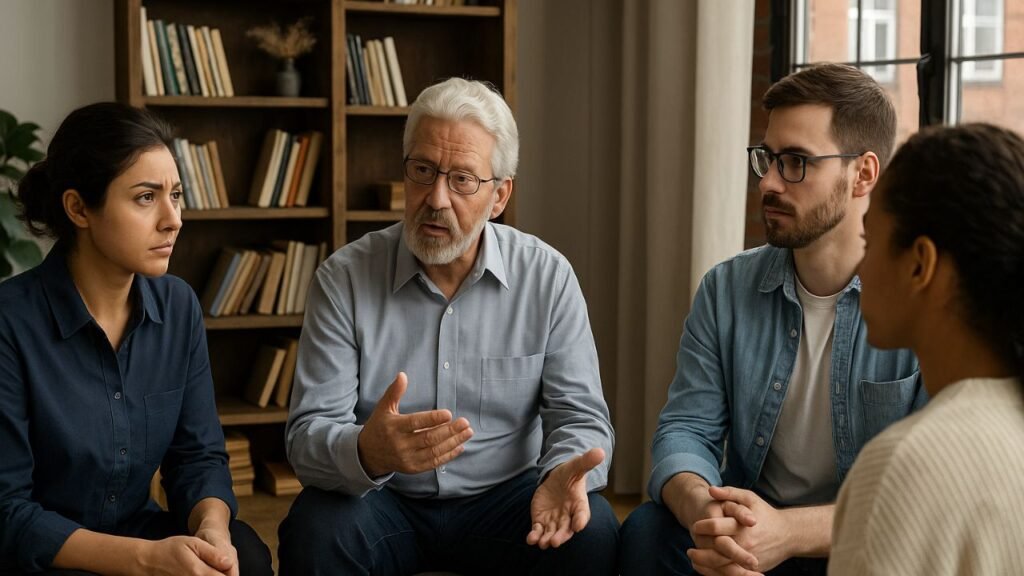Explore Deep Questions – In every age, humanity has sought to explore the mysteries of knowledge, belief, and rational inquiry. These three dimensions of thought define not only how we understand the world but also how we make decisions that shape societies. Knowledge provides us with a structured accumulation of facts and truths, belief gives us personal and cultural anchors that drive conviction, while rational inquiry equips us with the ability to question, test, and refine these understandings. By bringing these elements together, individuals and communities can address fundamental questions about justice, ethics, and human purpose. At a time when information is both abundant and contested, the challenge lies in learning to evaluate what we know, interrogate what we believe, and engage critically with diverse perspectives. This balance is essential for building resilient, inclusive, and forward-looking communities, much like the vision pursued by initiatives committed to education, empowerment, and ethical growth.

The Interplay of Knowledge and Belief in Human Life
The relationship between knowledge and belief has long been studied in philosophy and education. Knowledge, often defined as justified true belief, requires evidence and logical reasoning, while belief may be rooted in culture, tradition, or faith. According to the Stanford Encyclopedia of Philosophy, the concept of knowledge cannot be fully separated from belief, since even scientific knowledge begins with hypotheses that are initially matters of belief before being tested and confirmed (source). In practice, people’s lives are guided as much by beliefs as by verified knowledge, influencing decisions about morality, social structures, and community development. For example, educational institutions working at the grassroots level recognize that empowering students means addressing both the factual knowledge they acquire and the values and beliefs that shape their identity. This interplay is vital for fostering communities where rational discourse coexists with cultural diversity.
Rational Inquiry as a Path to Understanding
Rational inquiry is the disciplined process of examining ideas, testing assumptions, and seeking clarity through evidence and reasoning. It is the foundation of philosophy, science, and democratic discourse. As highlighted by the American Philosophical Association, rational inquiry demands openness, skepticism, and a commitment to clarity and fairness (source). In practice, this means not only asking “what do we know?” but also “how do we know it?” and “what are the consequences if we are wrong?” Such questioning has driven advances in technology, law, and social justice. In community-oriented organizations, rational inquiry is applied in program design, research, and advocacy to ensure that solutions are evidence-based and ethically grounded. When paired with compassion and inclusivity, it helps create environments where ideas can be debated constructively, empowering individuals to challenge systemic inequalities while respecting diverse perspectives.
Exploring Knowledge and Belief in Global Contexts
In a globalized world, the exploration of knowledge and belief cannot remain confined to isolated communities. Philosophers and social scientists stress the importance of cross-cultural dialogue in shaping our collective understanding of truth and meaning (source). In many societies, belief systems provide the foundation for resilience and solidarity, even when they do not align with empirical evidence. Conversely, scientific knowledge offers tools for addressing shared challenges such as climate change, poverty, and inequality. Bridging these two requires rational inquiry that respects tradition while applying universal principles of logic and evidence. Initiatives dedicated to empowerment often work at this intersection, equipping youth and marginalized groups with both the factual knowledge needed to navigate modern systems and the confidence to value their cultural beliefs. This dual approach creates stronger communities where respect, innovation, and justice are not seen as opposing forces but as complementary values.
The Future of Rational Dialogue and Community Empowerment
Looking ahead, the ability to integrate knowledge, belief, and rational inquiry will determine how societies respond to future challenges. In an era of misinformation and polarization, the task of nurturing rational dialogue is more urgent than ever. As highlighted by the International Council for Philosophy and Human Sciences, promoting critical inquiry and intercultural understanding is key to fostering peace and sustainable development (source). For community-driven organizations, this means creating platforms where people are encouraged to question, reflect, and propose solutions together. Knowledge empowers action, belief inspires commitment, and rational inquiry ensures that actions are grounded in fairness and effectiveness. When these elements converge, they create pathways for true empowerment—helping individuals and groups not only to survive but to thrive in a rapidly changing world. The pursuit of these deep questions is therefore not just academic; it is a practical mission with transformative potential.




